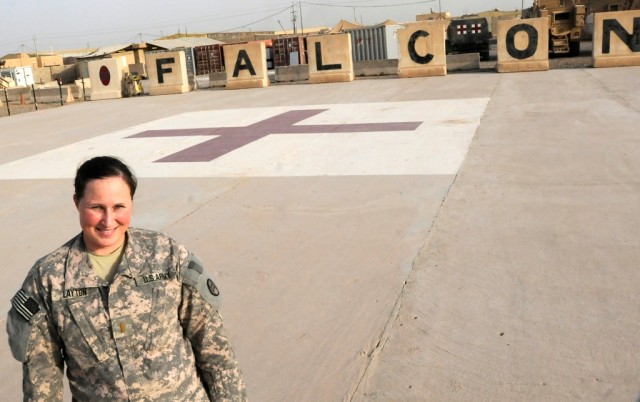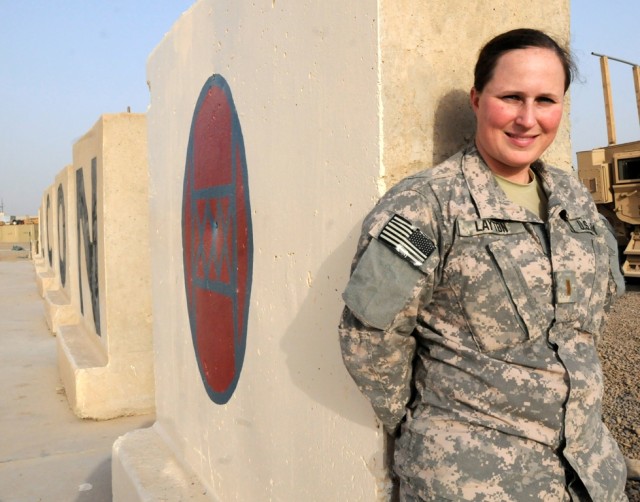BAGHDAD-North Carolina Army National Guardsman, 2nd Lt. Michelle Layton, has taken a giant step from college to combat in little more than a year.
The 2008 East Carolina University graduate earned a Bachelor of Science degree as a health fitness specialist and received her commission through the university's Army Reserve Officer Training Corps.
Layton now serves as the brigade medical planner for the 30th Heavy Brigade Combat Team at Forward Operating Base Falcon on the southern edge of Baghdad.
It's a job that comes with a lot of responsibility, but doesn't require a Ph.D., said Layton, on being an Army medical services officer.
"We work more on the administrative side than the medical side," the Athens, Ga. native explained. "I work on future projects, plans and tasking for the battalions.
"I like working for brigade," she said. "I get to see the big picture, rather than the small part that the battalions see." The 30th - known as the Old Hickory Brigade - controls about 4,000 Soldiers on its staff and in its five battalions.
"I like the people I work with and I like the staff," she said.
Part of her job is ensuring that all of the doctors make smooth transitions in and out of the brigade.
"There'll be four separate rotations of them during this deployment," she said.
Another main part of her job is ensuring that the five battalions maintain a full complement of medics; vitally important to the outlying bases and security stations. These medics are responsible for both routine medical care and initial emergency treatment for injured or wounded Soldiers.
The brigade operates over a 1,900 square mile patch of countryside abutting the southwestern edge of Baghdad between the Tigris and Euphrates rivers.
It was a long journey from Greenville to Iraq, both literally and figuratively. Layton is the third generation of Soldiers in her family.
Her grandfather and father were both enlisted Soldiers. "Granddaddy" Frank Layton was a World War II veteran and former prisoner of war; her father Alvin served with the Georgia Army National guard. She is the first officer in her family.
"The biggest thing is making my dad proud," she said about her desire to earn a commission. "I look up to him more than anybody. He's not a man of many words, but I know what makes him proud, and this makes him proud."
It is tradition for new officers to present a silver dollar to the first enlisted Soldier who salutes them. Family precedence, however, won't interfere with the military rank structure. "My daddy did give me my first salute, but he says he's still 'the general'" in the family, she said.
Layton expects to continue her military service after this deployment, but wants to further her career in a Blackhawk helicopter cockpit rather than a brigade staff office.
"I want to fly medevacs," she said about the medical evacuation helicopters. "I am interested in the whole medical side ... but I've always wanted to fly.
"With a medevac you're still working with the medical corps but also I'll do what I want to do, fly," she said. "So, I get the best of both worlds in a sense."




Social Sharing